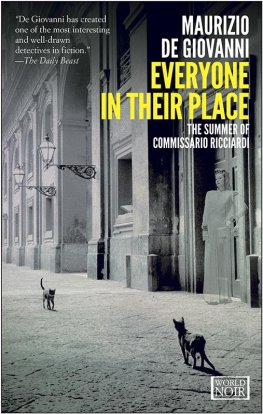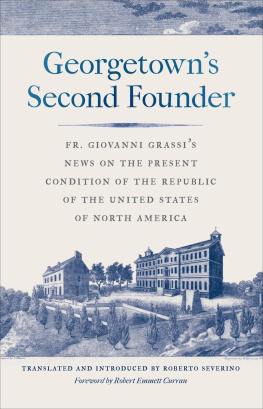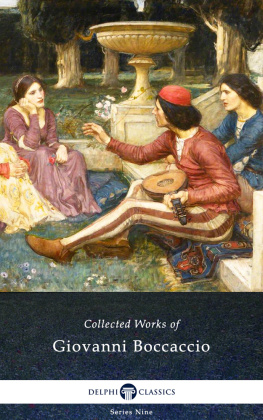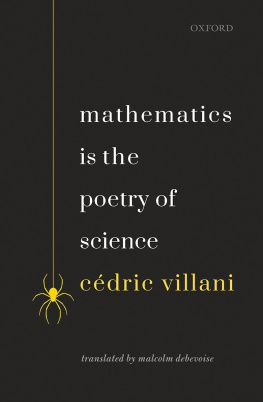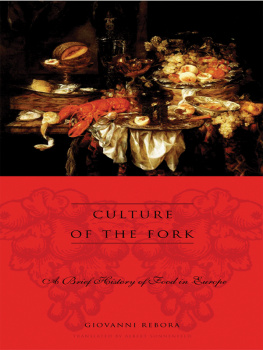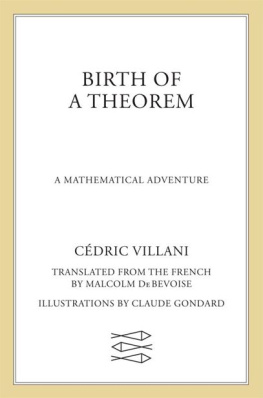PREFATORY NOTE
The Editor is responsible for the selection of the passages translated, and for the . He has also compared the translation with the original text, has satisfied himself of its general accuracy, and has made numerous suggestions.
The Translator is responsible for the fidelity of the translation in detail, and for its general tone and style. She has also drawn up the , and seen the work through the press.
For the selection of marginal references to the works of Dante the Editor and Translator are jointly responsible.
Both Translator and Editor desire to express their obligations to Mr. A.J. Butler, who has given them his ungrudging assistance in every difficulty, and whose learning and judgment have been invaluable.
INTRODUCTION
1. The Text.
This book of selections is not intended as a contribution to the study of Villani, but as an aid to the study of Dante. The text of Villani is well known to be in a very unsatisfactory condition, and no attempt at a critical treatment of it has been made. The Florence edition of 1823, in eight volumes, has been almost invariably followed. Here and there the Editor has silently adopted an emendation that obviously gives the sense intended, and on , passages which appear in some but not in all of the MSS. and editions of Villani are inserted in square brackets.
2. The References.
It is probable that many more references to Dante's works might advantageously have been inserted in the margin had they occurred to our minds; and we shall be glad to have our attention called to any important omissions.
As a rule we have aimed at giving a reference to any passage in Dante's works on which the text has a direct bearing, or towards the discussion of which it furnishes materials, without intending thereby necessarily to commit ourselves to any special interpretation of the passage in Dante referred to.
But in some instances such a reference would, in our opinion, distinctly tend to the perpetuation of error. In such cases we have purposely abstained from appearing to bring a passage of Villani into relation with a passage of Dante with which we believe it to have no connection. For instance, to have given a reference to the Vita Nuova 41, 1-11, on would have appeared to us so distinct and dangerous a suggestio falsi that we have felt compelled to abstain from it even at the risk of being charged with a suppressio veri by those who do not agree with us.
3. The Principle of Selection.
Our aim has been to translate all the passages from the first nine books of Villani's Chronicles which are likely to be of direct interest and value to the student of Dante. A few chapters have been inserted not for their own sakes but because they are necessary for the understanding of other chapters that bear directly on Dante. When a chapter contains anything to our purpose, we have usually translated the whole of it. Where this is not the case the omissions are invariably indicated by stars * * * * * *. We have given the headings of all the chapters we have not translated, so that the reader may have in his hand the continuous thread of Villani's narrative, and may have some idea of the character of the omitted portions. By these means we hope we have minimised, though we do not flatter ourselves that we have removed, the objections which are legitimately urged against volumes of selections.
The nature of the interest which the Dante student will find in these selections will vary as he goes through the volume.
The early portions, up to the end of , are interesting not so much for the direct elucidation of special passages in Dante as for the assistance they give us in realizing the atmosphere through which he and his contemporaries regarded their own past; and their habitual confusion of legend and history.
From our interest centres more and more on the specific contents of Villani's Chronicle. Here he becomes the best of all commentators upon one phase of Dante's many-sided genius; for he gives us the material upon which Dante's judgments are passed, and enables us to know the men and see the events he judges as he himself knew and saw them. Chapter after chapter reads like a continuous commentary on Purg. vi. 127-151; and there is hardly a sentence that does not lighten and is not lightened by some passage in the Comedy. Readers who have been accustomed to weary themselves in attempts to digest and remember historical notes (into which extracts from Villani, torn from their native haunts, have been driven up for instant slaughter, as in battue shooting) will find it a relief to have the story of the battles and revolutions of Florence, as Dante saw and felt it, continuously set before themeven though it be, for the present, in the partial and therefore mutilated form of "selections."
When we come to the later portions of the interest again changes. To the events after 1300 Dante's chief work contains comparatively few and scattered allusions; but as the direct connection with his writings becomes less marked the connection with his biography becomes more intimate. As we study the tangled period of Florentine politics that coincides with Dante's active political life (about 1300 a.d. ), the ill-concerted and feeble attempts of the exiles to regain a footing in their city, and later on the splendid but futile enterprise of Henry, we seem to find the very fibres of Dante's life woven into the texture of the history. The dream of the De Monarchia was dreamed by Henry as well as by Dante; but as we read the detail of his failure it is borne in upon us that he not only did fail but must fail, for his ideal was incapable of realization. Italy was not ready for him, and had she been ready she would not have needed him.
Finally, the last pages of our volume, which cover selections from the portion of , extending from the death of Henry to the death of Dante himself, are for the most part inserted for a very special reason, as to which some little detail is necessary. Strangely enough they derive their importance not from any interest Dante may have taken in the events they record, but from the fact that he did not take enough interest in them to satisfy one of his most ardent admirers. The editions of Dante's collected works include a correspondence in Latin hexameters between Johannes de Virgilio and Dante. Now in the poem that opens this correspondence Johannes refers to Statius and to Lethe in a manner that proves beyond all doubt that the whole of the



